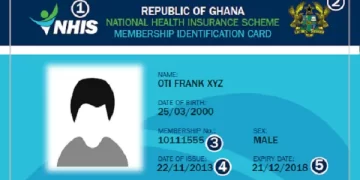The United Nations Development Programme (UNDP) enlisted the help of investors and businesses to channel private capital into Ghana’s Sustainable Development Goals (SDGs).
The virtual impact facilitation event, which was held in collaboration with the Norwegian Business for Peace Foundation, focused on UNDP’s upcoming SDG Investor Map for Ghana. The SDG Investor Map is a digital tool that provides market intelligence on investment opportunities in Ghana as well as related impact data in order to identify and increase SDG-aligned actionable investments in order to achieve the global goals of ending poverty and inequality.
The funding gap for the SDGs is enormous. Ghana’s SDG financing gap is estimated to be USD 43 billion per year, or 52 percent of GDP, necessitating more aggressive actions to achieve the Sustainable Development Goals.
‘Ghana is a top destination for private investment, including international investment, to supplement public and domestic investment and close the financing gap for the SDGs. As we enter the last decade of action on the SDGs, Angela Lusigi, UNDP Resident Representative in Ghana, noted that “increasing domestic and external private investment and exploring innovative financing frameworks remains the key to unlocking the commitments in the Addis Ababa Action Agenda for Financing for Development”.
The Ghana SDG Investor Map is part of UNDP’s global SDG Impact initiative, which aims to collaborate with the private sector to invest in enterprises and markets that support the SDGs. The Maps will provide much-needed country-level data and SDG investment roadmaps to investors and businesses.
The Ghana SDG Investor Map is expected to contribute to the 100 billion Ghana cedis in investments planned as part of the country’s Coronavirus Alleviation and Revitalization of Enterprises Programme (Ghana CARES), a three-year program aimed at reversing Ghana’s growth trajectory and achieving the SDGs.
“Investors want data, and the SDG Investor Maps provide that data and information, highlighting investment opportunities and expected development impact. To contribute to sustainable development, I will encourage businesses to incorporate the SDGs into their core growth strategies.” Secretary General of the International Chamber of Commerce (ICC) in Ghana, Emmanuel Doni-Kwame.
Speaking at the event, Mr. Yofi Grant, Chief Executive Officer of the Ghana Investment Promotion Centre (GIPC), emphasized the importance of continuing to engage the private sector in order to improve their understanding of global goals. “Partnership is critical in achieving the SDGs, and it is critical to continue engaging the private sector to understand global goals and their role in achieving the SDGs,” he said.
The Ghana SDG Investor Map outlines 12 investment opportunity areas in five key sectors, informed by national policy priorities and development needs articulated in critical policy documents such as the Ghana CARES and Ghana @100 programs, which seek to accelerate economic growth. These are the following:
Agriculture: investing in irrigation systems and dams, aquaculture and fish breeding, grain storage infrastructure and logistics services, as well as integrated farm operations and management systems, internet of things (IoT), and agribusiness analytics.
Infrastructure includes affordable housing upscaling, road construction and maintenance, electronic waste collection and recycling, and sanitation services for underserved areas.
Investments in affordable mobile internet hotspots for villages, schools, and rural areas should be increased.
Healthcare: drone transportation and logistics solutions, as well as digitalization of patients’ health data and inventory and supplies.
Expanding manufacturing and distribution of improved cooking stoves in the consumer goods sector.
The Managing Director of the Business for Peace Foundation, Marius Dcker, encouraged businesses to use the SDGs as a foundation for entering untapped markets.
“It is critical to drive and fund the SDG agenda, which will necessitate a global effort. In recent years, investing in the impact space has become more clearly defined.
Now is the time to start thinking creatively. Business for Peace, in collaboration with our ‘For Better Business Together (4BBT)’ partners, encourages the entire business community to join us on this incredible journey. These lofty goals can be achieved through effective collaboration and strong partnerships, he stated.
Read Also: Self-eulogising Nana Addo not law-abiding – Former Buem MP
SOURCE: ATLFMNEWSONLINE



























